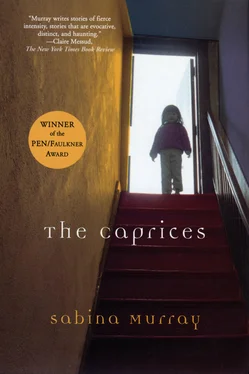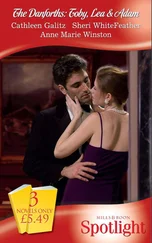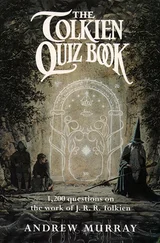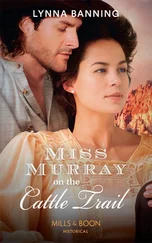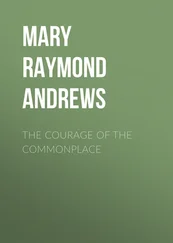Katrina appeared at the door with the tea. She set it down on the table and wiped her hands on her skirt. She was flushed and distracted.
“Sit down, for heaven’s sake. Have some tea. Have some gin, if you like.” Katrina did not move. She looked from the guest, back over to her father, then at her hands. She was paralyzed with embarrassment.
“Where’s the food?” said Bouman to his daughter.
“It will be ready soon,” Katrina whispered.
Bouman took a mouthful of gin and closed his eyes. He smiled. “She is a quiet girl,” he said to Tan, “but good. She is nothing like her mother, who was wild and, in my opinion, better. I find it hard to believe that there was something that could kill that woman, but there was. And now she is dead ten years.”
“You are lucky to have a daughter to care for you,” said Tan.
“Yes. Yes, I am.” Bouman drank again. “And you, where is your family?”
“My father is in Aceh. My brother is also on a buying expedition. He has gone to the west.”
“How are you traveling?”
“By prahu.”
“I saw none.”
“My brother has taken the boat with him. I do not mean to tax your hospitality, but your housekeeper told me that I could stay in a room in the manager’s quarters. It is only for one week.”
“You are welcome to stay as long as you like.” Bouman did not care what Tan did with his time. “You are from Aceh?”
The young man nodded.
“A relative of the raja?”
“Yes.”
“I trust he is alive and well?”
“Alive, but not well.”
Even better, thought Bouman. “Did he speak of me?”
“Only to say that during the war, you had been on opposite sides, but if there was one Dutchman in Sumatra who could give me a straight answer, it was you.”
“I was on the side of pepper. That’s what we fought for in Aceh. Many lives were wasted, uselessly, on both sides. I will not have the stuff on my table.”
“Pepper?”
“Pepper and war, so if we must talk of arms, we will do so after we eat.” Bouman spun his glass on the table.
“You lost your fingers in Aceh?” asked Tan.
Bouman raised his right hand. The thumb was solid and his fore- and middle fingers had survived the war, but the other two were sheared right off. The shadow of Bouman’s altered hand fell across Katrina’s face. “During the war, but not because of it. A bull elephant frightened by the conflict entered camp. Some were trampled and in the effort to kill it, a stray bullet took off my fingers.”
“I am sorry that you lost your fingers.”
“Oh, I still have them, and later, if I’ve had enough of this stuff”—Bouman raised his glass—“I will show them to you.”
Katrina looked shyly at her father. She had an overbite and when she was uncomfortable, struggled to get her mouth closed over her teeth. Despite this, she was pretty. Bouman thought she had taken the best physical traits of her mother, the gentle brow, the broad cheeks, the unblemished skin that glowed in the sun. From him, she had inherited horsy European teeth — at odds with her small jaws — and social awkwardness. At seventeen she looked more womanly than her full-blooded native peers. She also lacked their guile and awareness. Bouman noticed sadly that Tan had taken a few cautious glances in Katrina’s direction and that her burning cheeks and anxiety had been noticed and seen as encouragement.
During dinner Katrina cowered behind the floral arrangement. When Tan thought Bouman so involved with his food that he was not being watched, he slid the flowers slightly to the left with the tip of his knife to take a better look at the girl. She was concentrating on her food, taking the tiniest bites. When she saw Tan watching her, she met his eyes frankly and nervously. It was not he who rattled her, it was her father. Bouman ate fast, without conversation, and loudly. To keep up Tan choked down the chicken and bitter squash, which was spicy and good, only clearing his throat with water. The entire meal took ten minutes. Katrina was not even halfway through her food when the men stood up together and went to stand by the railing to smoke, or in the case of Tan, to pinch a little betel nut, as was his custom after dinner.
“I sent her to Batavia for school,” said Bouman, smoke pouring out the corners of his mouth. The two men stood now on the edge of the veranda and a bright moon hit the water and the trees, lighting everything with a pleasing, silver glow. “When she chooses to speak, she can speak in Dutch and French.” He smiled at his daughter, who had overcome her shyness enough to smile back. “She came back with a taste for embroidered cloth and now wants me to buy her a piano. I can no longer eat with the simple smell of meat. Now I must be menaced at the table by bouquets of these tough, native flowers whose cheap perfume makes the food taste like shampoo.”
“Women like pretty things,” said Tan. Bouman took in Tan’s soulful eyes and long-fingered, elegant hands. His hair had a sheen to it. Bouman laughed.
“And men,” he said, “care only for drink, and barring that, war.” Here Bouman gazed knowingly at his guest.
“I don’t need to darken this evening with business,” said Tan. “I am enjoying your hospitality and I can wait until tomorrow.”
“Why,” said Bouman suddenly, his face gripped in a smile, “why do you think that I have weapons?”
Tan nodded a few times and turned to his host, who was now only inches from his face. “I know that you have supplied hunters with weapons. They have come out of the jungle with elephant, rhinoceros, tiger, boar. They have taken their heads mounted back to Europe. And you have supplied the cartridges to this end.”
“No more hunters for me,” said Bouman.
Tan was poised to speak, but then changed his mind. He raised his limeade in a quick, silent toast.
“What were you going to say?”
“What do you mean?”
“Be frank with me. It is the only way to get what you want.”
“I don’t intend to be disrespectful.”
“Of course not.”
“You are the supervisor of the trading post.”
“Ah. And you would like to speak to the owner?”
Both Tan and Bouman looked up the coast, where a mere two hundred feet away there was another house, much like Bouman’s, only this one was still and dark. “Peter Versteegh is on a hunt,” Bouman said.
“When did he leave?”
“Five years ago.”
“When do you expect him back?”
“I don’t,” said Bouman. “He was foolishly hunting with a stout businessman from Marseille, someone he knew from the trade. They were hunting orangutan. I suspect the Batak got them, that Versteegh’s bony head is gracing a chieftain’s mantel as is that Frenchman’s. He had a very plump head and impressive mustaches. Even I could see the value in collecting a head like that. .”
“Father!”
“Ah. She speaks. I’m sorry to offend.” Bouman laughed. “Go get some sweets for our guest. I’m sure we have something.”
Bouman waved Katrina off. She reluctantly pushed away from the table and the chair legs ground loudly across the floor. Bouman saw her look at Tan with complete frustration and Tan smiled back.
“The Frenchman,” whispered Bouman as Katrina left, “had little appreciation for life. He shot an ape and brought it in. It was a female, lactating. He’d lost the infant and didn’t seem to care. I went out looking for the baby. I went out for hours, all night, with a lantern. Call me sentimental, but I know what it’s like when a child loses the mother.”
“Do you really think the Batak killed them?”
“You know better than I do their beliefs, that the ancestors come back as animals — elephant, tiger, and orangutan. Even death is not permanent. I saw little value to the lives of Versteegh and this Frenchman. His name, I remember, was Guillotte. Yes. And they are dead.”
Читать дальше
